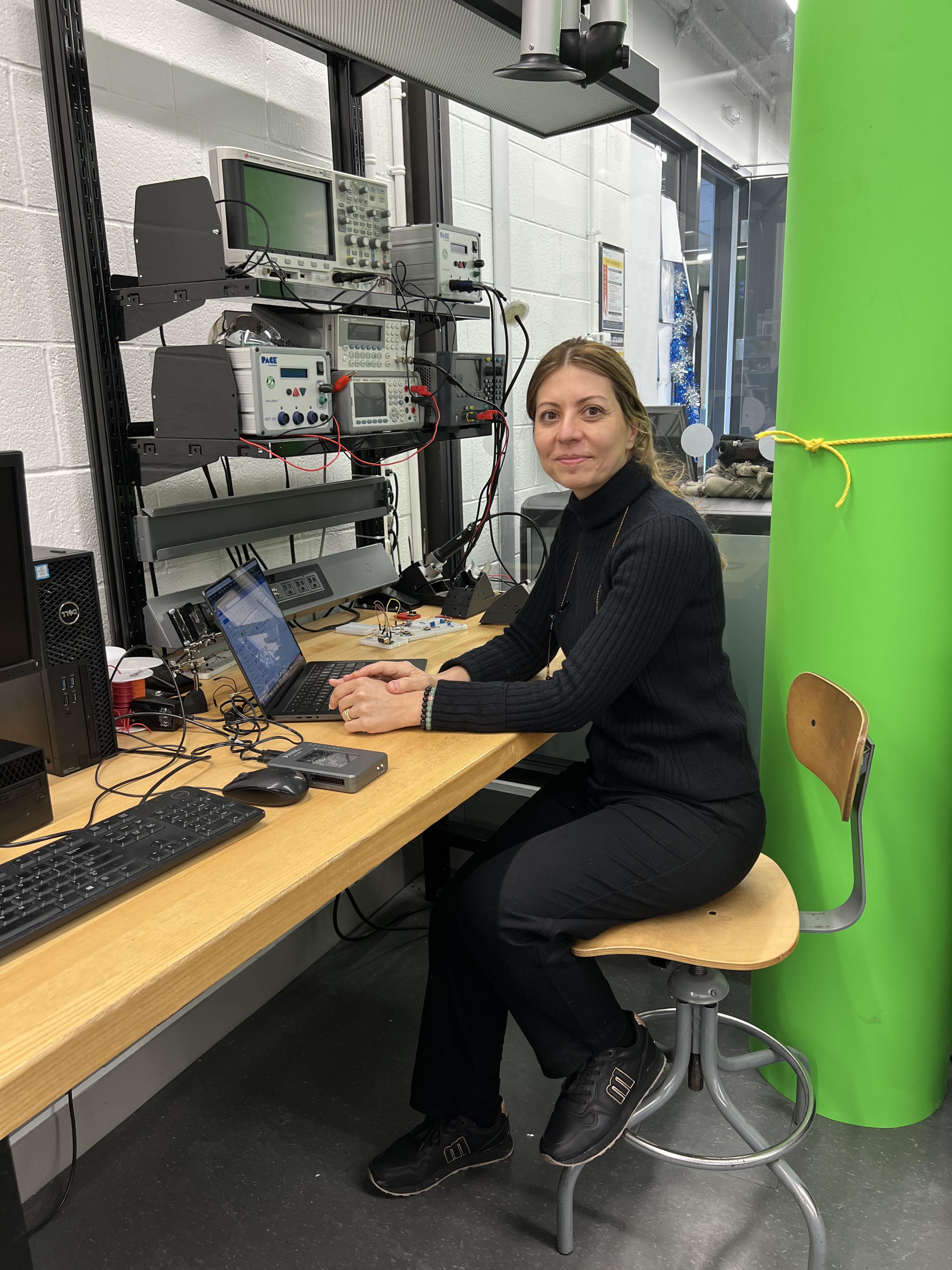
This story is part of an ongoing series that explores the innovative research being led by Humber's faculty members.
A Humber College professor is working on a research project that has the potential for substantial cost and resource savings for health-care facilities along with improved patient outcomes.
Maryam Davoudpour is a professor with Humber’s Faculty of Applied Sciences & Technology (FAST) and is working with teams from St. Michael’s Hospital, the University of Toronto and Toronto Metropolitan University on the project. It’s called Smart Textiles to Deliver Neuromuscular Electrical Stimulation (NMES) for Intensive Care Unit Acquired Weakness (ICUAW).
The project's objective was to create a device that will connect to smart textile garments such as leg stockings and arm sleeves that will allow for automated and sustained NMES. NMES sends electrical impulses to nerves, which cause the muscles to contract.
More than 230,000 Canadians are admitted each year to an Intensive Care Unit (ICU) and studies have shown that up to half will develop ICUAW. This leads to muscle inactivity due to extended bedrest and can result in muscle injury and weakness, which can be permanent. ICUAW also increases ICU mortality.
The project will allow for an ICU therapist to easily and quickly apply, coordinate and optimize individualized NMES therapy for patients in the ICU. Full or partial prevention of ICUAW decreases ICU mortality and helps prevent possible physical disability in patients, which reduces the need for accessing health resources and health care after discharge.
Davoudpour was a co-applicant on the New Frontiers in Research Fund Exploration Award in 2019 that provided $250,000 for the project.

The team has created three iterations of a prototype and are currently in the testing phase with the latest. Once finished, the device can be controlled remotely and the hope is to implement an Artificial Intelligence component so that no caregiver would be needed to operate it.
Davoudpour notes that this would make the device extremely valuable for those who are bedridden and living in communities without access to special care providers or are living far from hospitals and other health-care settings. The potential applications for health-care providers are vast.
“We feel this is a technology that hospitals all around the world could use,” said Davoudpour, who won the Research Excellence Award as part of the President’s Awards in 2020.
Nine Humber students have been involved in the project, working in the prototype lab as research assistants or through work-integrated learning opportunities. Davoudpour strongly believes that research empowers students, has many educational benefits and builds skills and confidence.
“We have had great students who are eager to do research working on this project. It’s extremely rewarding to see the students doing well in our prototype lab,” said Davoudpour.
One of the benefits of having students involved in the project is they often offer up unexpected ideas or new perspectives. Davoudpour says she is learning from them while they learn from her and the project.